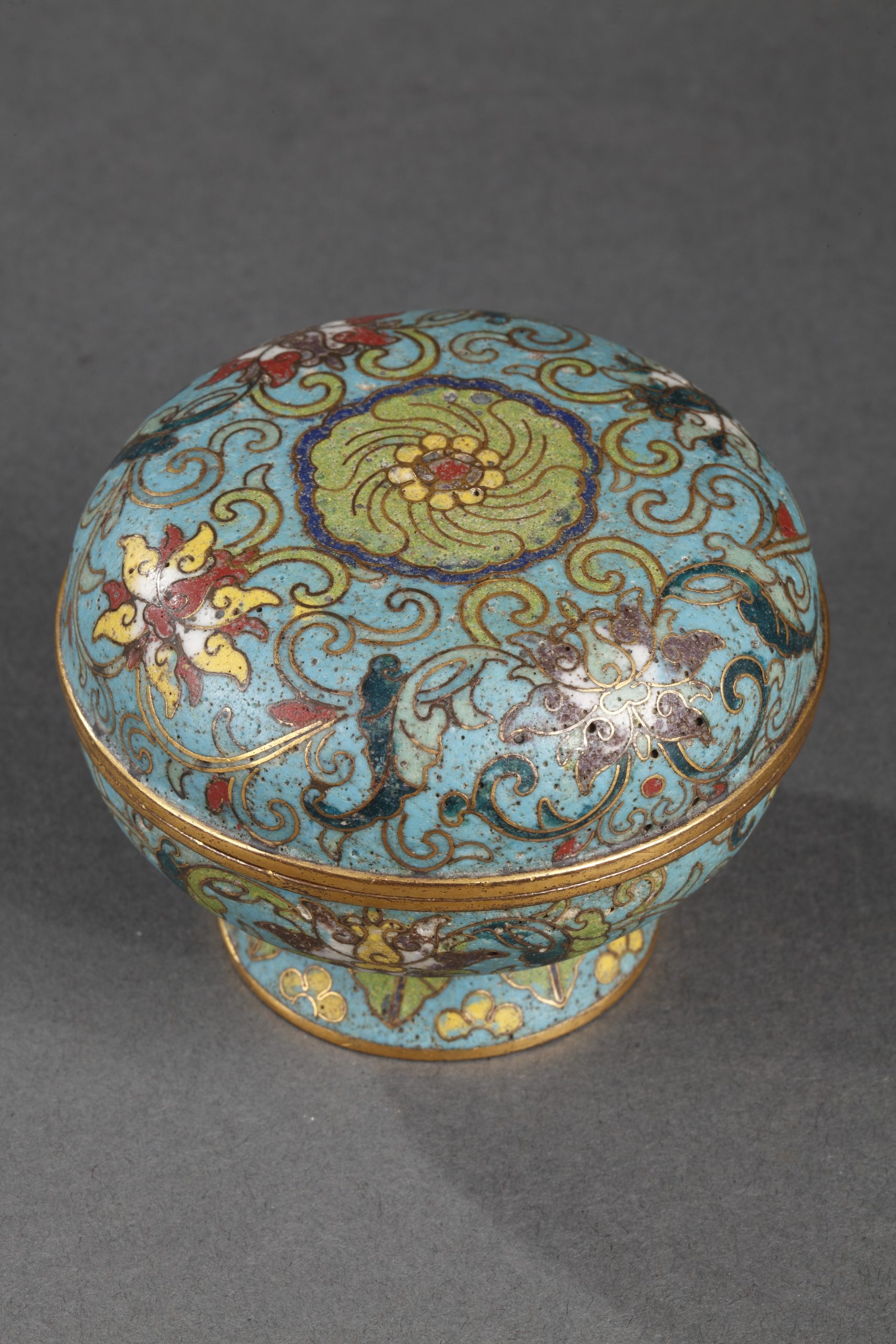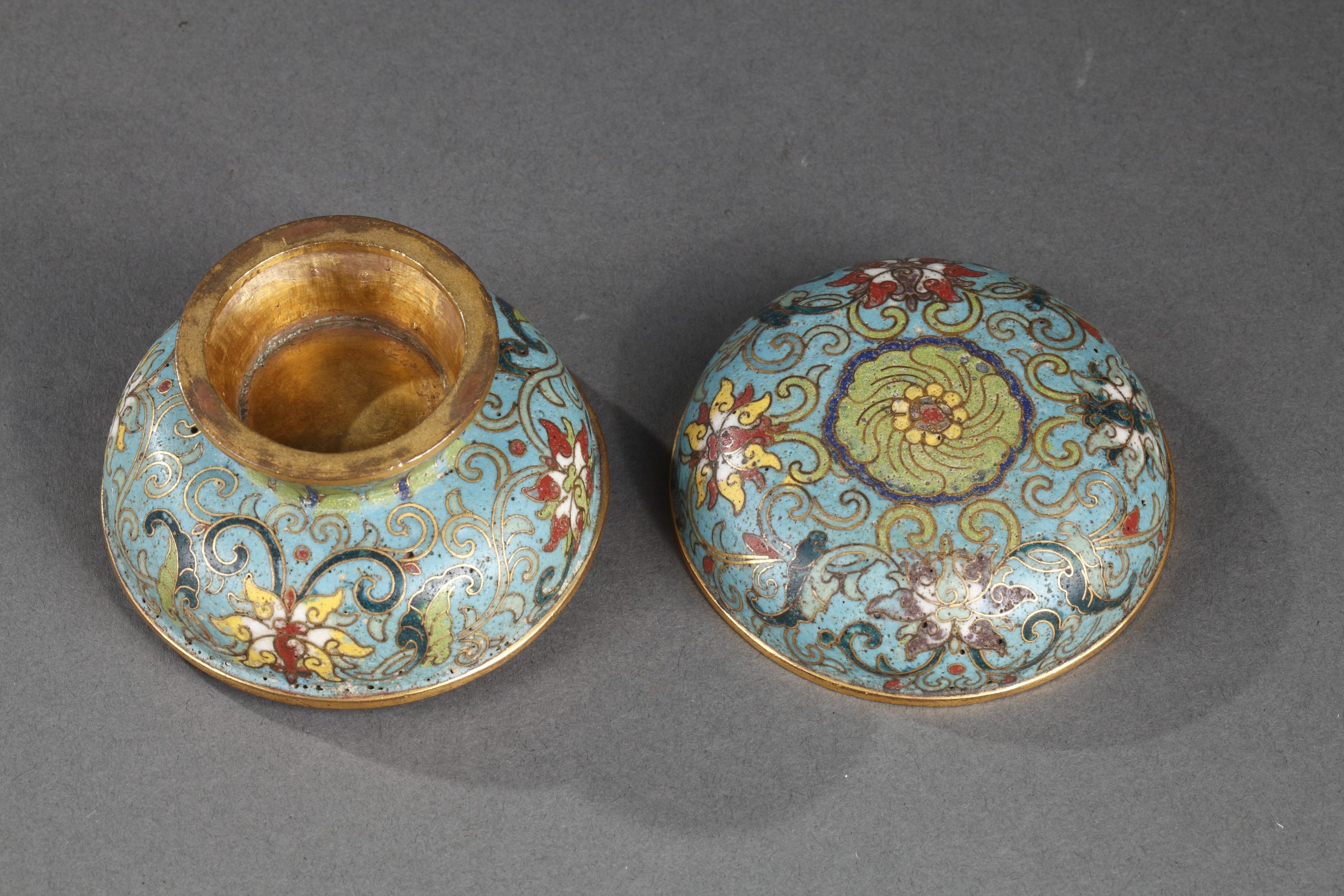A box with a small pedestal decorated with lotus scrolls
- Gilt-bronze and cloisonné enamels
Description
The round box resting on a small splayed pedestal. The box is decorated with four blooming lotus with scrolls in red, white, yellow, light green, dark purple enamels. On the centre of the cover, a swirlig flower pattern with four lotus and scrolls. The foot is adorned with leaves patterns. The background is enamalled in a dazzling turquoise blue shade. The inside of the box and cover is also in turquoise blue. The base is gilted.
The technique of Chinese cloisonne enamels comes from Western Europe. The technique arrived to China with the trade between East and West. Under Han, Tang and Sui dynasties, Chinese crafstsmen knew some enamelling techniques and the glasswork but there are no cloisonne artifacts of these eras. It is only at the end of 13th century and Yuan dynasty that cloisonne enamels become very popular. The heyday of the technique is under Ming and Qing dynasties. Crafsmen use cloisonne enamels in a lot of shapes : vases, censers, bowls, works of art, figure, scholar’s objects…
Bibliography
I Tesori del Palazzo Imperiale di Shenyang, Fabbri Editori, 1989, Milano, p. 368-369 (a similar box)
A box with a small pedestal decorated with lotus scrolls
- Gilt-bronze and cloisonné enamels
Discover more Cloisonné and enamel
Return to the collection
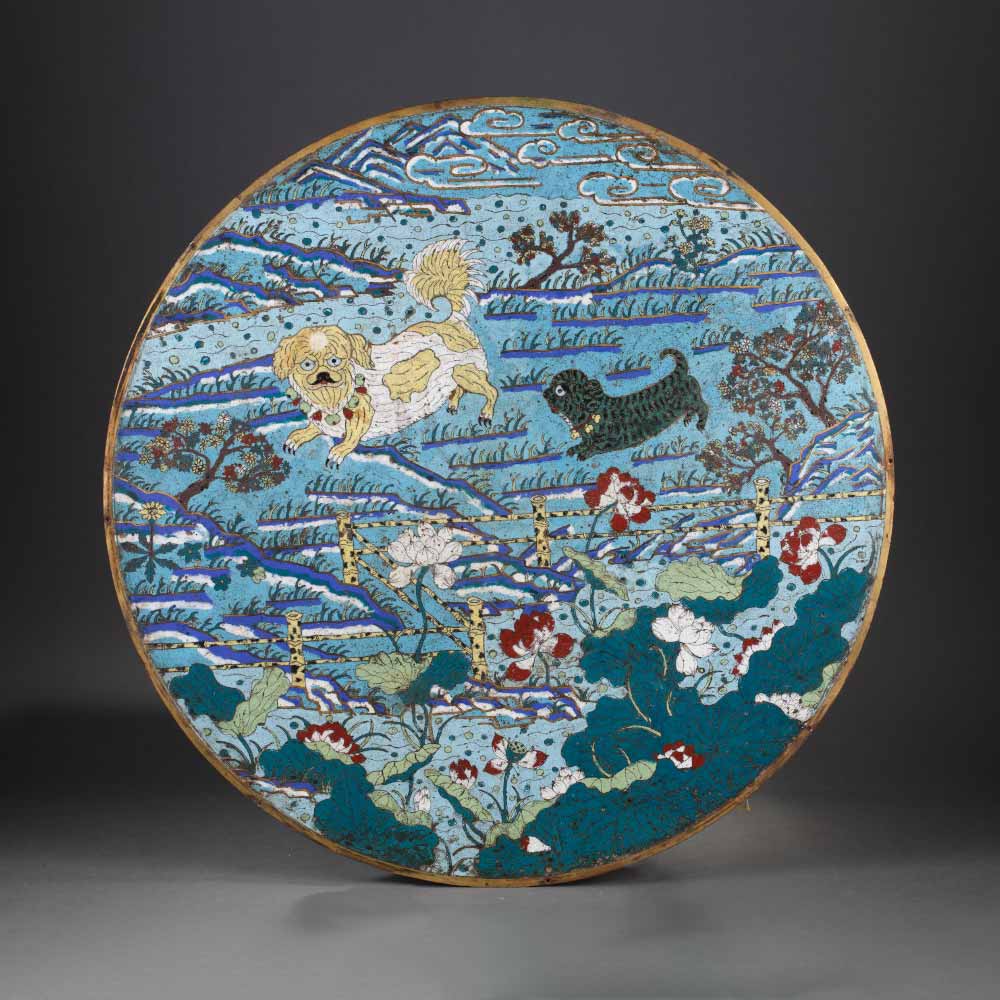
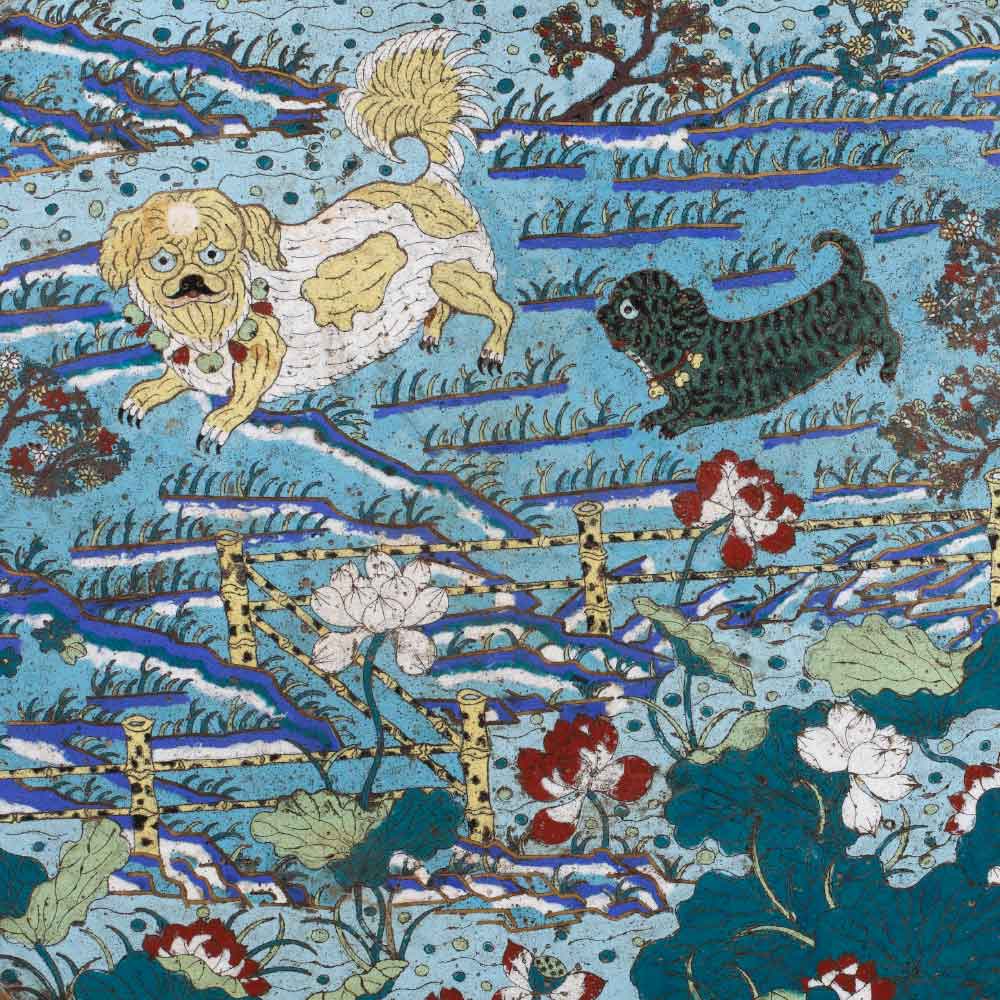
A rare gilt-bronze and cloisonné enamels round plaque decorated with dogs in a garden
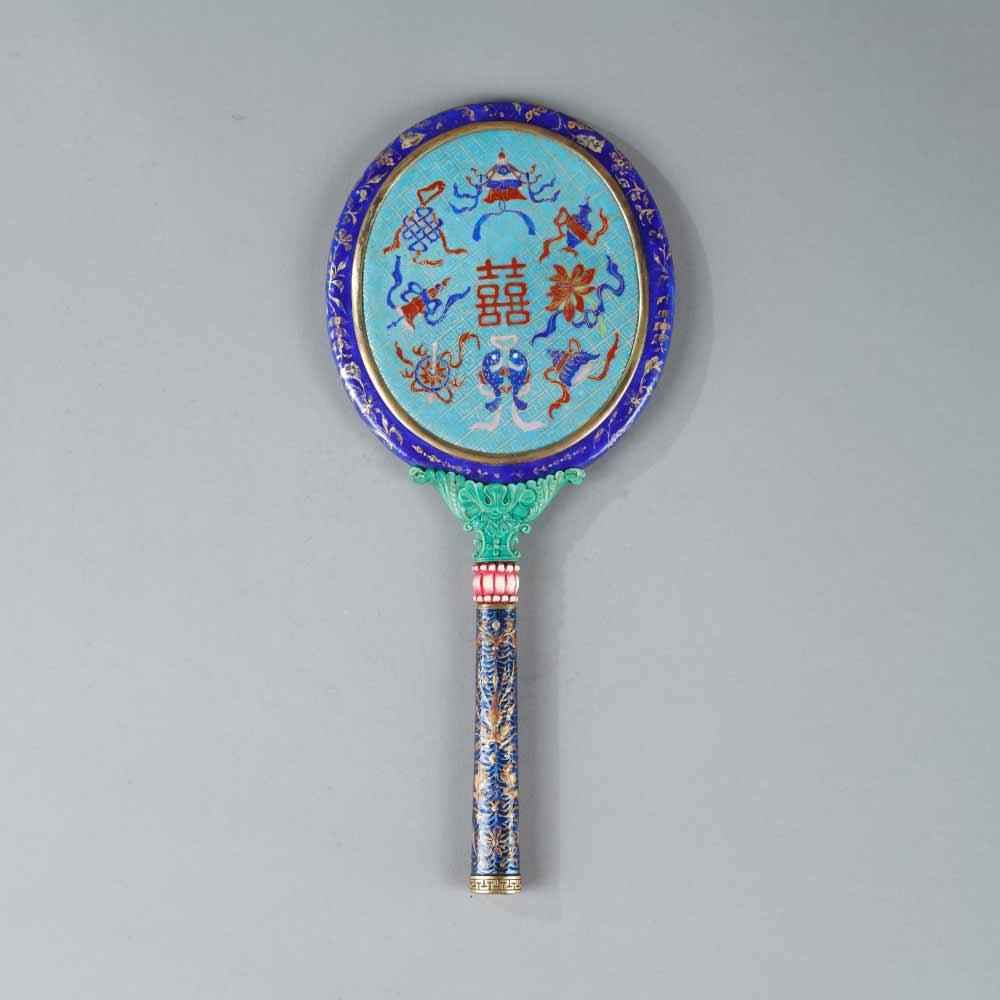
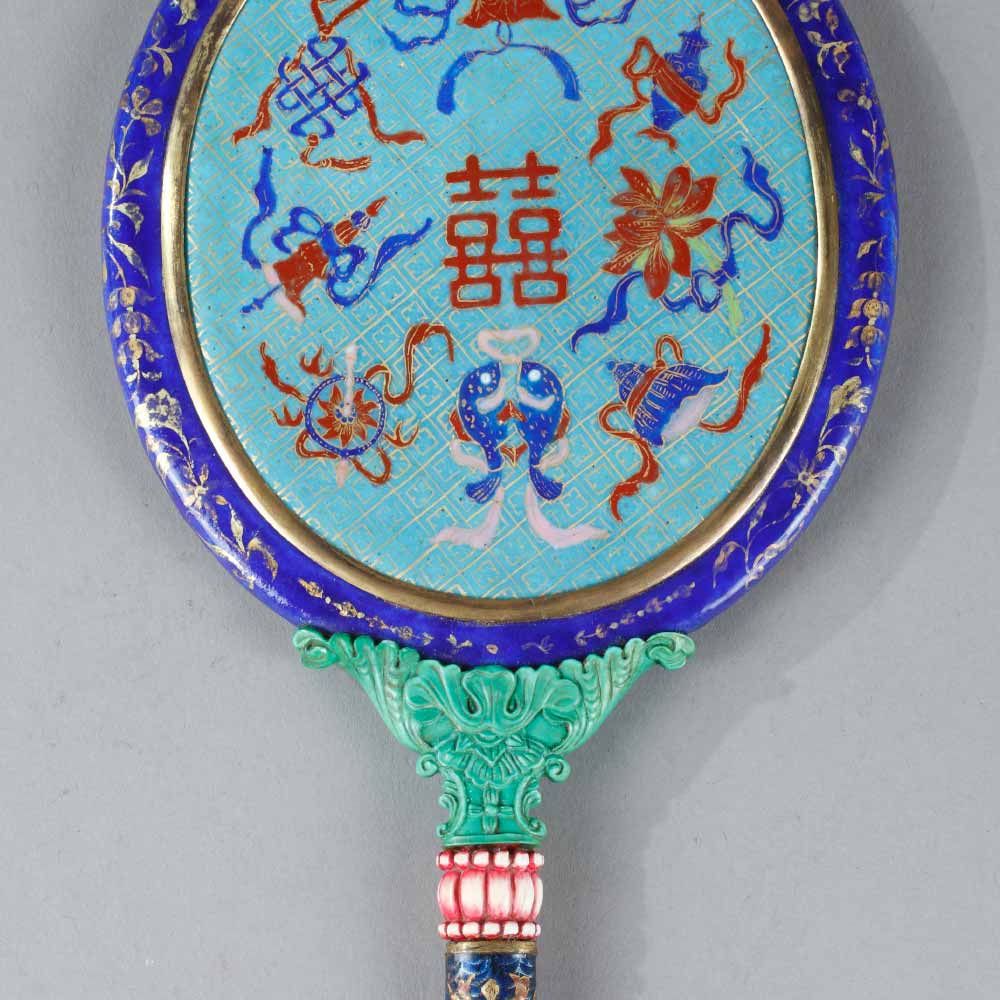
A painted enamel hand-mirror with auspicious patterns

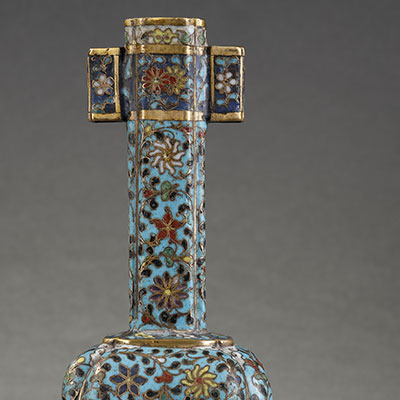
An arrow-vase (touhu) decorated with small flowers and scrolls on turquoise ground
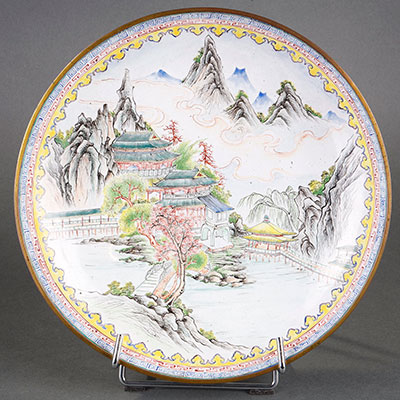
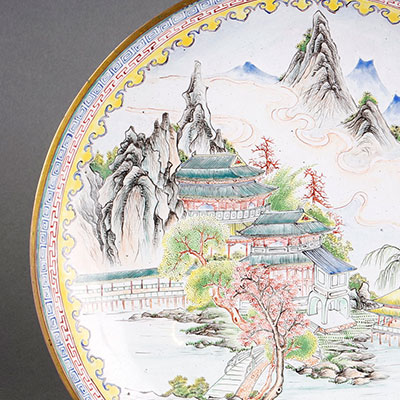
A Qianlong mark-and-period enamelled dish with landscape











